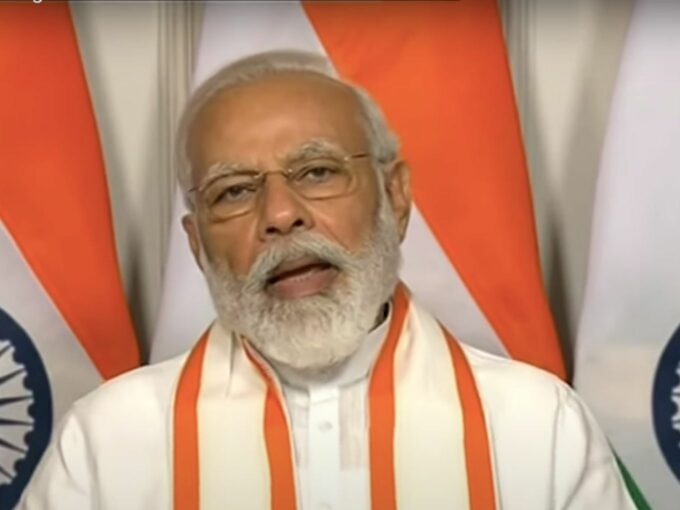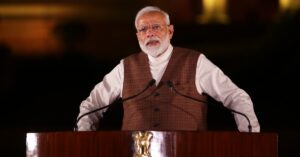According to ET’s sources, the prime minister will take a final decision on the regulatory framework for crypto assets.
While speaking at the summit for democracy yesterday, he had underlined the need for a global norm when handling modern technologies like social media and cryptocurrencies.
Crypto tokens are essential for permissionless blockchains to maintain their immutability and avoid tampering.

Prime Minister Narendra Modi will take a final decision on the regulatory framework for cryptocurrencies amidst conflicting viewpoints among different stakeholders, according to a new report.
“We need transparency in all areas of governance through innovative digital solutions. We must also jointly shape a global norm for emerging technologies like social media and cryptocurrencies so that they are used to empower democracy and not to undermine it,” said Narendra Modi while speaking at the Summit for Democracy hosted by United States President Joe Biden.
Last month, the Prime Minister had chaired a high-level meeting on crypto where concerns were raised about ‘over-promising and non-transparent’ crypto advertisements
“Take cryptocurrency or bitcoin for example. It is important that all democratic nations work together on this, and ensure it does not end up in the wrong hands which can spoil our youth,” said the PM while speaking on cryptocurrencies at the Sydney Dialogue.
The cryptocurrency and Regulation of Digital Currency Bill, 2021 is listed for consideration during the ongoing winter session of Parliament. According to an ET report, Prime Minister is about to take a final decision soon.
Indian lawmakers have a variety of options when it comes to crypto regulations: they could either enact a blanket ban over all cryptocurrencies or on just a select few. Currently, it seems most likely that the government will ban all cryptocurrencies as legal tender while maintaining an opening for a central bank digital currency (CBDC).
But even that doesn’t mean an outright crypto ban; just a ban on cryptocurrencies being used as legal currencies. It still leaves room for crypto tokens to be treated like a different asset class, and regulated and taxed as one. A blanket ban on all cryptocurrencies will push India out of the emerging crypto economy.
“There are two categories of blockchains: permissioned and non-permissioned. In the first, a set of people come together to create a blockchain which is private and not accessible publicly,” explained Nischal Shetty, CEO of WazirX while speaking at an online seminar concerning crypto regulations earlier this week.
“The other is the permissionless blockchain which exists in the public domain, but the only way to have that is to have crypto to protect it. It is not possible as of today to have a permissionless blockchain without crypto: which secures the blockchain,” he added.
Permissioned blockchains fall into the ambit of private players and they should be able to do what they do with it since it doesn’t affect anyone else. For example, a bank can run its own private permissioned blockchain ledger for maintaining a record of private transactions.
Permissionless blockchains, however, are truly decentralised and therefore offer higher levels of security and transparency; anybody is able to access these ledgers and check the transactions for accuracy and the data for consistency.
If you would like to find out more about different approaches to crypto-regulation, you can read our piece that compares and contrasts the different practices adopted by the UK and the EU here.









